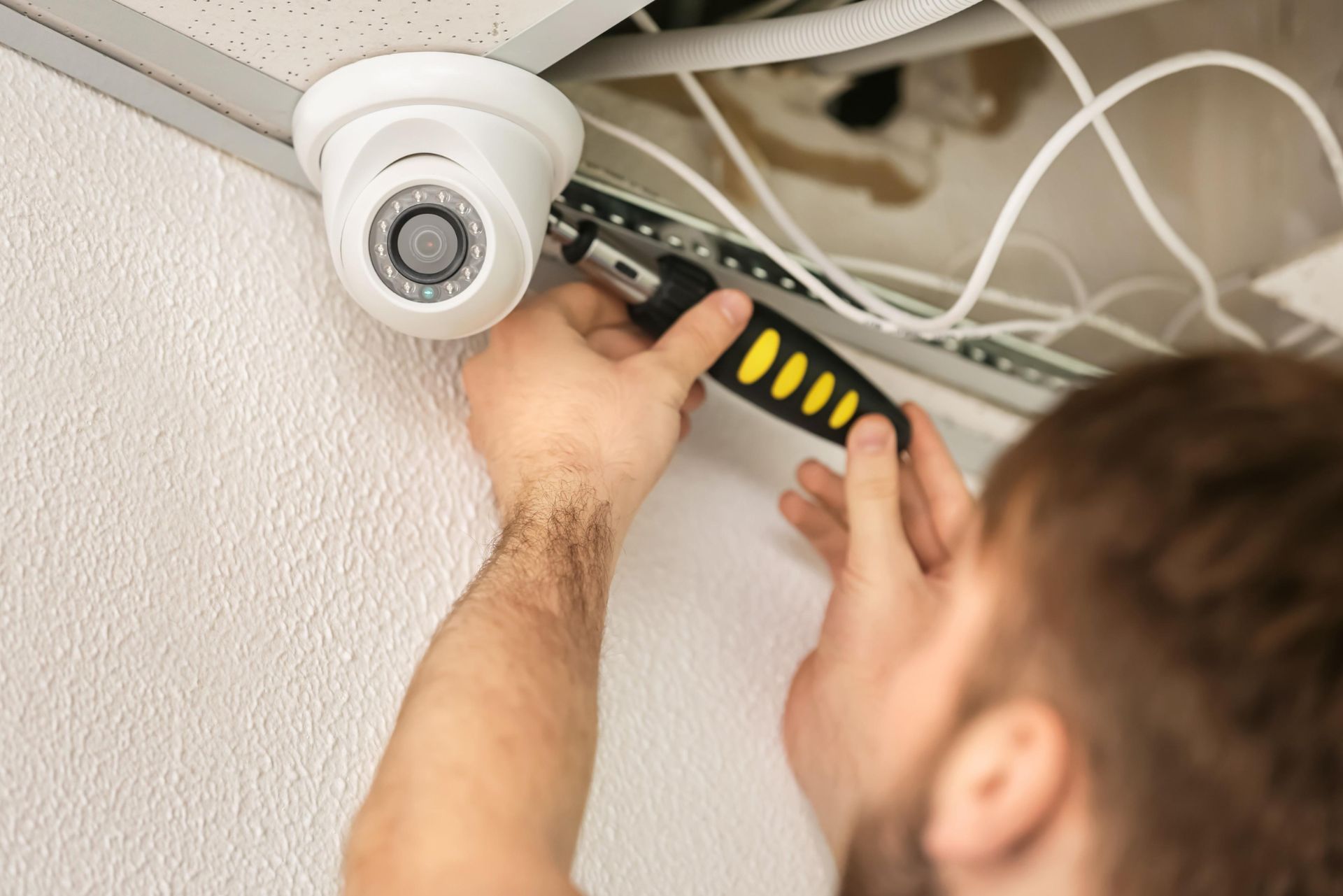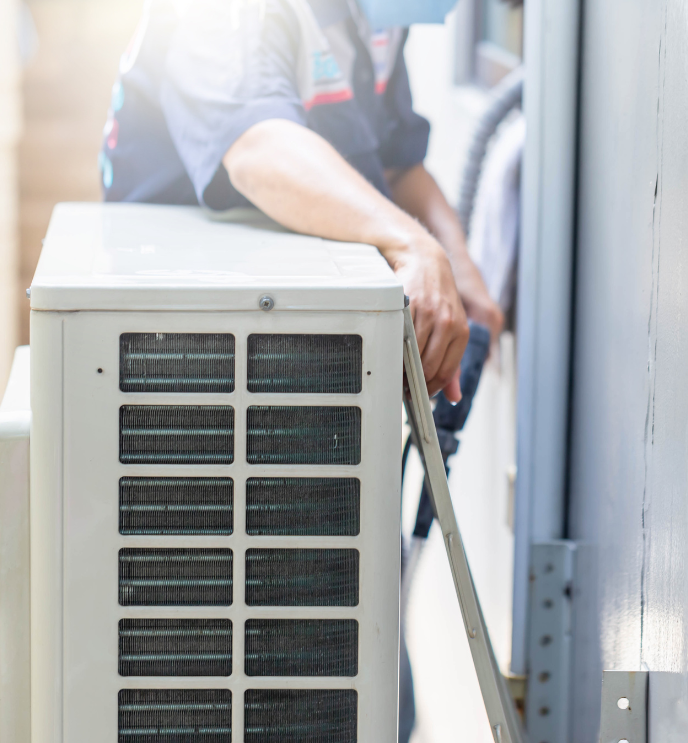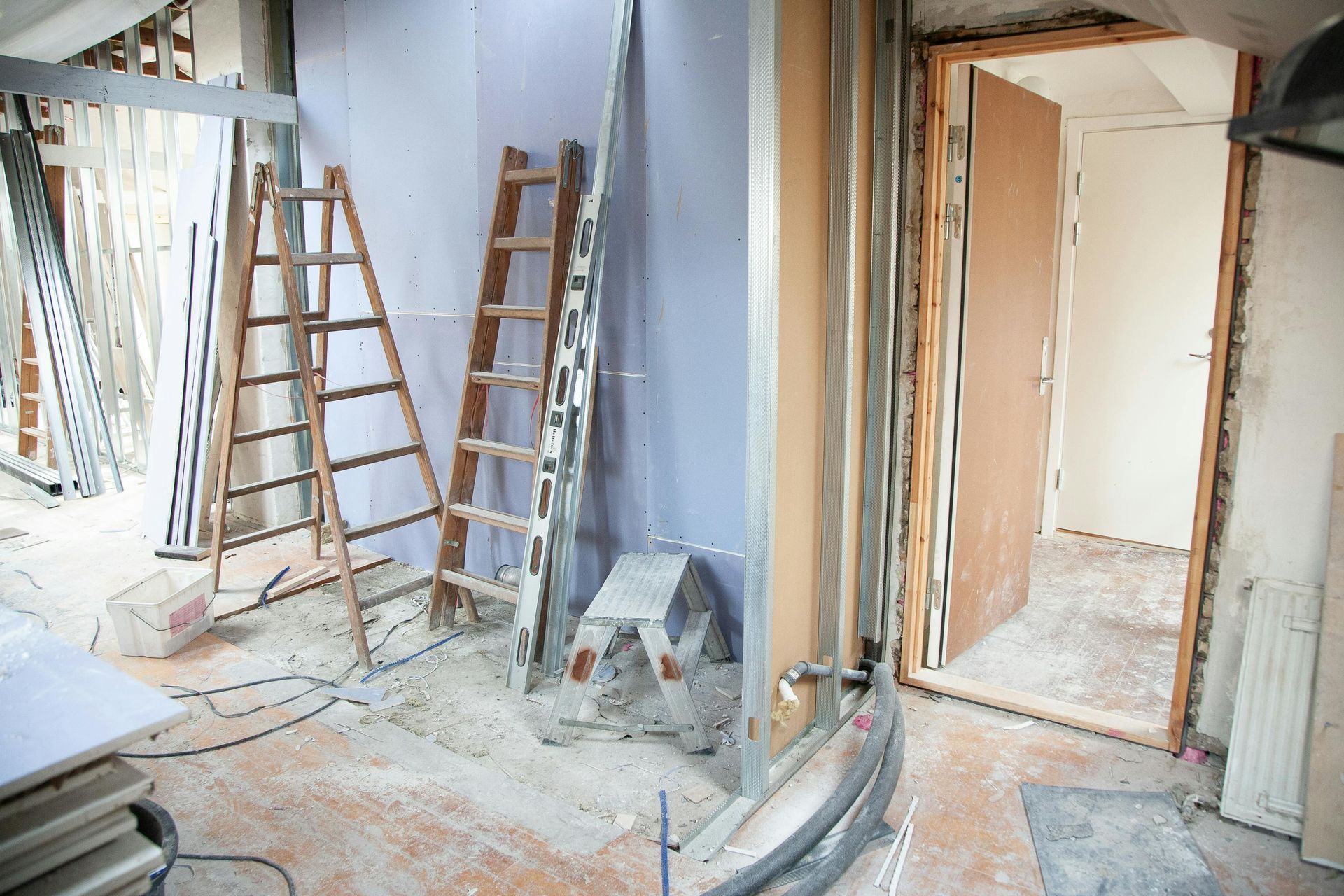Types of Contractors We Serve
Jonathan Behr
Owner of Contractor Insurance Pros by Behr Insurance Services
Index
The Importance of Insurance for Security System Installers
Types of Insurance for Security System Installers
Coverage Options and Considerations
Choosing the Right Insurance Provider
The Cost of Insurance for Security System Installers
Common Misconceptions About Security System Installer Insurance
Contact Us
Phone
Location
Simi Valley, CA 93065
The Woodlands, TX 77382
Katy, TX 77494
In the rapidly evolving world of technology, security system installers play a crucial role in safeguarding homes and businesses. However, with this responsibility comes a unique set of risks. To protect themselves and their clients, security system installers must consider obtaining specialized insurance. This article delves into the various aspects of security system installer insurance, outlining its importance, types, coverage options, and more.
The Importance of Insurance for Security System Installers
Insurance is not just a safety net; it is a vital component of running a successful security installation business. As installers work on various projects, they face numerous risks that could lead to financial loss or liability claims.
Risk Management
Risk management is essential for any business, especially in the security installation sector. Accidents can happen, whether it’s damaging a client’s property or causing injury during installation. Insurance helps mitigate these risks, allowing installers to focus on their work without the constant worry of potential financial repercussions. Furthermore, having a comprehensive insurance policy can cover a range of incidents, from equipment theft to errors in installation, ensuring that the business remains operational even in the face of unforeseen challenges. This proactive approach not only protects the installer but also contributes to a more stable and reliable service for clients.
Building Client Trust
Having appropriate insurance coverage can enhance a security system installer’s credibility. Clients are more likely to trust a professional who is insured, knowing that they are protected in case of any mishaps. This trust can lead to increased business opportunities and referrals, which are vital for growth in a competitive market. Additionally, many clients may specifically request proof of insurance before hiring a contractor, making it a prerequisite for securing contracts. By demonstrating a commitment to professionalism through proper insurance, installers can differentiate themselves from competitors who may not prioritize this aspect of their business.
Moreover, insurance can also serve as a marketing tool. When installers advertise their services, mentioning their insurance coverage can attract clients who prioritize safety and reliability. This not only helps in building a solid reputation but also positions the installer as a responsible and trustworthy choice in the eyes of potential customers. As the security landscape continues to evolve, with new technologies and threats emerging, being insured allows installers to adapt and expand their services without the fear of financial setbacks, ultimately leading to a more sustainable business model.

Types of Insurance for Security System Installers
There are several types of insurance that security system installers should consider. Each type serves a specific purpose and addresses different risks associated with the profession.
General Liability Insurance
General liability insurance is one of the most fundamental types of coverage for security system installers. It protects against claims of bodily injury, property damage, and personal injury that may occur during the course of business operations. This insurance is essential for covering legal fees and settlements if a client or third party files a lawsuit. For instance, if a technician accidentally damages a client's property while installing a security system, general liability insurance can help cover the costs of repairs or replacements, ensuring that the installer can focus on their work without the constant worry of financial repercussions.
Professional Liability Insurance
Also known as errors and omissions insurance, professional liability insurance provides coverage for claims arising from mistakes or negligence in the performance of professional duties. For security system installers, this could include issues like faulty installations or failure to meet industry standards. This type of insurance is crucial for protecting against claims that could arise from dissatisfied clients. In a field where technology is constantly evolving, the risk of making an error increases, making this coverage even more important. For example, if an installer overlooks a critical security feature during installation, leading to a breach, professional liability insurance can help mitigate the financial fallout from potential lawsuits or claims for damages.
Workers' Compensation Insurance
If a security system installer has employees, workers' compensation insurance is typically a legal requirement. This insurance covers medical expenses and lost wages for employees who are injured on the job. It not only protects the workers but also shields the business from potential lawsuits related to workplace injuries. Given the physical nature of the job, which often involves climbing ladders, handling heavy equipment, and working in various environments, the risk of accidents is significant. For example, if an employee sustains an injury while installing a security camera on a high ceiling, workers' compensation insurance ensures that they receive the necessary medical care without placing a financial burden on the installer. Additionally, having this insurance can enhance the company's reputation, demonstrating a commitment to employee safety and well-being, which can be a strong selling point for potential clients.
When selecting insurance, security system installers should carefully consider their coverage options to ensure they are adequately protected.
Assessing Coverage Limits
Coverage limits refer to the maximum amount an insurance policy will pay for a covered claim. It’s crucial for installers to assess their potential risks and choose limits that reflect the scale of their operations. For example, larger projects may require higher coverage limits to protect against significant financial losses. Installers should evaluate their past projects and the types of systems they install to determine potential liabilities. This assessment can help in selecting appropriate limits that not only cover physical damages but also any potential legal fees arising from disputes or claims.
Exclusions and Endorsements
Every insurance policy comes with exclusions—specific situations or conditions that are not covered. It is essential for security system installers to read through their policies carefully and understand these exclusions. Additionally, endorsements can be added to policies to extend coverage for specific risks that may not be included in standard policies. For instance, if an installer frequently works with high-value properties or specialized equipment, they might consider endorsements that cover theft or damage to these items, ensuring that they are not left vulnerable to unforeseen circumstances.
Bundling Insurance Policies
Many insurance providers offer discounts for bundling multiple policies together. Security system installers can save money by combining general liability, professional liability, and workers' compensation insurance into a single package. Bundling not only reduces costs but also simplifies the management of insurance policies. Furthermore, having a single provider for multiple policies can lead to better customer service and a more streamlined claims process, as the insurer will have a comprehensive view of the installer’s operations. This holistic approach can also foster a stronger relationship with the insurance provider, potentially leading to more favorable terms and conditions in the future.
Understanding Local Regulations
In addition to evaluating coverage options, security system installers must also be aware of local regulations that may impact their insurance needs. Different regions may have specific requirements regarding liability coverage, licensing, and safety standards. By staying informed about these regulations, installers can ensure compliance and avoid potential fines or legal issues. Engaging with local industry associations or attending workshops can provide valuable insights into the regulatory landscape, helping installers to navigate the complexities of insurance and compliance effectively.
Evaluating Claims History
Another important factor to consider is the claims history of the insurance provider. Installers should research the insurer's reputation for handling claims, including the speed and fairness of their processes. A provider with a strong track record of customer satisfaction can make a significant difference when a claim needs to be filed. Additionally, understanding the insurer's claims process can prepare installers for what to expect, ensuring they can respond quickly and efficiently in the event of an incident. This proactive approach not only enhances the installer’s peace of mind but also reinforces their commitment to professionalism and accountability in their work.
Choosing the Right Insurance Provider
Selecting the right insurance provider is a critical step for security system installers. The right provider can make a significant difference in terms of coverage, support, and overall service.
Researching Insurance Companies
Before committing to an insurance provider, it is advisable to conduct thorough research. Look for companies that specialize in insurance for contractors or specifically for security system installers. Reading reviews and testimonials can provide insights into the experiences of other professionals in the industry. Additionally, consider reaching out to peers or industry associations for recommendations, as they may have firsthand experience with various providers. This network can often highlight the strengths and weaknesses of different companies, helping you make a more informed choice.
Comparing Quotes
Obtaining quotes from multiple insurance providers is an essential part of the decision-making process. Comparing quotes allows installers to evaluate coverage options and costs effectively. It is crucial to ensure that the quotes are for similar coverage levels to make an accurate comparison. When reviewing these quotes, pay attention not only to the premiums but also to the deductibles and limits of coverage. Some providers may offer lower premiums but have higher deductibles or less comprehensive coverage, which could lead to higher out-of-pocket costs in the event of a claim. Understanding the nuances of each policy is vital to ensure you choose a plan that truly meets your needs.
Understanding Customer Support
Customer support is an often-overlooked aspect of choosing an insurance provider. A responsive and knowledgeable support team can be invaluable, especially when claims need to be filed or questions arise. Opt for providers known for their excellent customer service to ensure a smoother experience. Investigate the availability of support channels, such as phone, email, or live chat, and consider testing their response times with a few inquiries before making your decision. Furthermore, look for providers that offer educational resources or tools to help you understand your policy better. A provider that invests in client education demonstrates a commitment to customer satisfaction and can help you navigate the complexities of your insurance policy with greater ease.
The Cost of Insurance for Security System Installers
The cost of insurance can vary significantly based on several factors, including the type of coverage, the size of the business, and the level of risk associated with the work performed.
Factors Influencing Insurance Costs
Several factors can influence the cost of insurance for security system installers. These include the business’s location, the number of employees, the types of systems installed, and the overall claims history. Installers with a clean claims history may benefit from lower premiums, while those with a history of claims may face higher costs. Additionally, the specific types of security systems being installed—ranging from basic alarm systems to complex surveillance networks—can also impact insurance rates. More advanced systems may require specialized training and equipment, which can increase the perceived risk and, consequently, the insurance costs.
Average Premiums
While it’s challenging to provide a one-size-fits-all figure for insurance premiums, general liability insurance for small businesses typically ranges from $400 to $1,500 annually. Professional liability insurance may add an additional $500 to $2,500 to the overall costs. Workers' compensation insurance costs can vary widely based on the state and the number of employees. It's important to note that these figures can fluctuate based on market conditions and regulatory changes, so staying informed about industry trends and potential shifts in insurance requirements is crucial for business owners.
Tips for Reducing Insurance Costs
There are several strategies that security system installers can employ to reduce their insurance costs. Maintaining a safe work environment, implementing risk management practices, and investing in training for employees can lead to fewer claims and lower premiums. Additionally, shopping around for quotes and taking advantage of discounts for bundling policies can also help save money. Engaging in proactive risk assessments and regular safety audits can further demonstrate to insurers that the business is committed to minimizing risks, potentially leading to more favorable rates. Networking with other professionals in the industry can also provide insights into effective practices for reducing costs and enhancing overall safety protocols.

Common Misconceptions About Security System Installer Insurance
There are several misconceptions surrounding insurance for security system installers that can lead to inadequate coverage or unnecessary expenses.
“I Don’t Need Insurance if I’m a Small Business”
Many small business owners believe that insurance is unnecessary for their operations. However, even small businesses face risks that can lead to significant financial losses. Having insurance is essential, regardless of the size of the operation.
“My Client’s Insurance Will Cover Any Issues”
Some installers may assume that their clients’ insurance policies will cover any incidents that occur during installation. This is a dangerous assumption, as clients may have specific exclusions or limits in their policies. It is crucial for installers to have their own insurance to protect against potential claims.
“Insurance is Too Expensive”
While insurance costs can add up, the potential financial burden of a lawsuit or significant property damage far outweighs the cost of premiums. Investing in insurance is a proactive measure that can save money and protect the business in the long run.
The Claims Process: What to Expec
Understanding the claims process is essential for security system installers to navigate any potential issues effectively.
Reporting an Incident
The first step in the claims process is reporting the incident to the insurance provider as soon as possible. This may involve providing details about the incident, including dates, locations, and any parties involved. Timely reporting is crucial, as delays may affect the outcome of the claim.
Documentation and Evidence
Gathering documentation and evidence is a vital part of the claims process. This may include photographs, witness statements, and any relevant contracts or agreements. Providing comprehensive documentation can help support the claim and expedite the process.
Claim Resolution
Once the claim has been submitted, the insurance provider will review the information and make a determination. This process may take time, depending on the complexity of the claim. Installers should remain in communication with their insurance provider throughout the process to stay informed about the status of their claim.
Conclusion
In the world of security system installation, having the right insurance coverage is not just a luxury; it is a necessity. From general liability to professional liability and workers' compensation, each type of insurance plays a critical role in protecting installers from potential risks and liabilities.
By understanding the importance of insurance, exploring the various types available, and carefully selecting a provider, security system installers can ensure they are adequately protected. As the industry continues to grow and evolve, staying informed about insurance options will be key to maintaining a successful and sustainable business.
Ultimately, investing in insurance is an investment in peace of mind, allowing security system installers to focus on what they do best—providing top-notch security solutions to their clients.
Areas we serve









